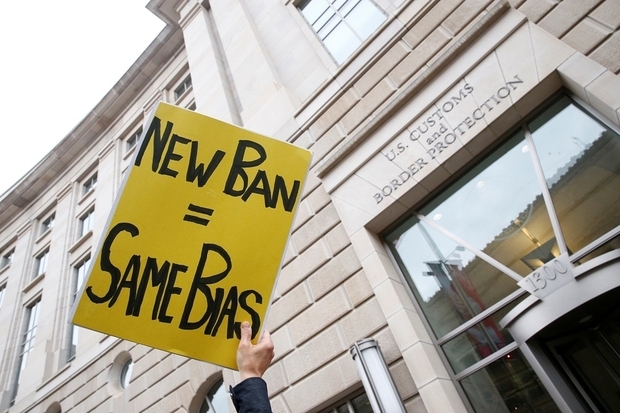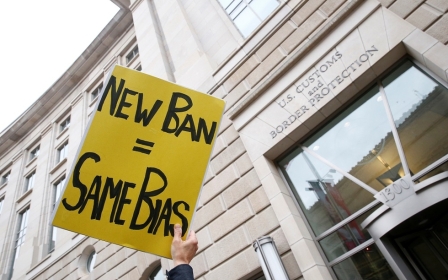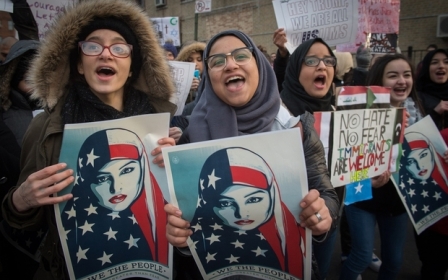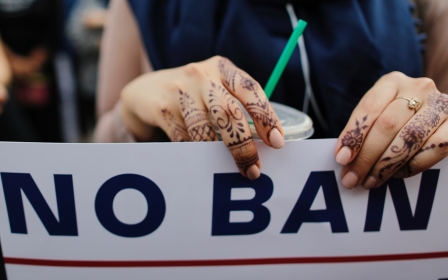US Supreme Court upholds Trump's 'Muslim ban'
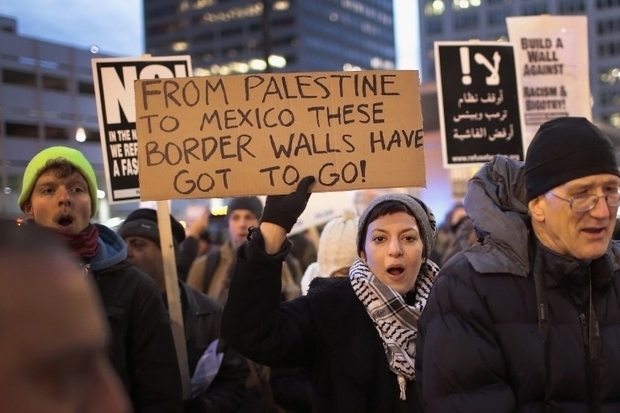
The United States' Supreme Court on Tuesday upheld President Donald Trump’s travel ban targeting several Muslim-majority countries, handing him one of the biggest victories of his presidency so far, rejecting the argument that it represented unconstitutional religious discrimination.
The 5-4 ruling, with the court's five conservatives in the majority, ended a fierce battle in the courts over whether or not the policy amounted to an unlawful Muslim ban. Lower courts had blocked the travel ban announced in September, as well as two prior versions, in legal challenges brought by the state of Hawaii and others.
The court held that the challengers had failed to show that the ban violates either US immigration law or the US Constitution's First Amendment prohibition on the government favouring one religion over another.
Trump was quick to take to his favourite social media platform to comment on the ruling.
Writing for the court, Chief Justice John Roberts said that the government "has set forth a sufficient national security justification" to prevail.
"We express no view on the soundness of the policy," Roberts added.
The ruling affirmed broad presidential discretion over who is allowed to enter the United States, meaning that the current ban can remain in effect and that Trump could potentially add more countries.
The current ban prohibits entry into the United States of most people from Iran, Libya, Somalia, Syria and Yemen. The Supreme Court allowed it to go largely into effect in December while legal challenges continued.
Roberts said the actions taken by Trump to suspend entry of certain classes of people were "well within executive authority and could have been taken by any other president - the only question is evaluating the actions of this particular president in promulgating an otherwise valid proclamation".
Challengers have argued the policy is motivated by an enmity they say Trump holds towards Muslims, urging courts to take into account his inflammatory comments during the 2016 presidential campaign.
Trump as a candidate called for "a total and complete shutdown of Muslims entering the United States".
Sotomayor described at length various statements Trump made on the campaign trail.
"Taking all the evidence together, a reasonable observer would conclude that the proclamation was driven primarily by anti-Muslim animus," she added.
Following Trump’s announcement of his “Muslim ban” last year, the country witnessed a wave of Islamophobia.
The Council on American Islamic Relations (CAIR) found that 2017 was one of the worst years for Muslims in America, with attacks on members of the community increasing by 44 percent compared to the year before.
Former New York City Mayor Rudy Giuliani, who served as the vice chairman of Trump’s transition team, told Fox: “When he first announced it, he said 'Muslim ban'.
"He called me up. He said, 'Put a commission together. Show me the right way to do it legally'."
Trump has a history of controversial remarks made about Muslims.
He also said in an interview with CNN: “I think Islam hates us.”
In the interview, Trump drew very little distinction between the religion and terrorism.
"It's very hard to define. It's very hard to separate. Because you don't know who's who.”
A 'great failure'
The travel ban is one of Trump's signature hard-line immigration policies that have been a central part of his presidency. The president issued his first version just a week after taking office, though it was quickly halted by the courts.
Venezuela and North Korea have also been targeted. Those restrictions were not challenged in court.
"The ruling will go down in history as one of the Supreme Court's great failures," said Omar Jadwat, a lawyer for the American Civil Liberties Union, which challenged the ban.
The court's decision "swallows wholesale government lawyers’ flimsy national security excuse for the ban instead of taking seriously the president’s own explanation for his actions," Jadwat added.
"Not since key decisions on slavery, segregation in schools, and Japanese American incarceration have we seen a decision that so clearly fails to protect those most vulnerable to government-led discrimination," added Farhana Khera, executive director of the group Muslim Advocates.
The high court in June and December 2017 allowed two versions of the ban to take effect while court challenges ran their course, but had not resolved the legal merits of the challenges until now.
Trump’s rhetoric surrounding Islam has been a lightening rod for opposition. The hashtag "NoMuslimBanEver" trended on Twitter as arguments were made before the Supreme Court in April, during which time Solicitor General Noel Francisco said that Islam was "one of the great countries of the world".
In 2017, there were 3.45 million Muslims in the United States, making up about 1.1 percent of the total US population, a report published by the Pew Research Centre found.
Currently, 75 percent of Muslims in the US are immigrants or second-generation Americans, according to the data.
New MEE newsletter: Jerusalem Dispatch
Sign up to get the latest insights and analysis on Israel-Palestine, alongside Turkey Unpacked and other MEE newsletters
Middle East Eye delivers independent and unrivalled coverage and analysis of the Middle East, North Africa and beyond. To learn more about republishing this content and the associated fees, please fill out this form. More about MEE can be found here.


